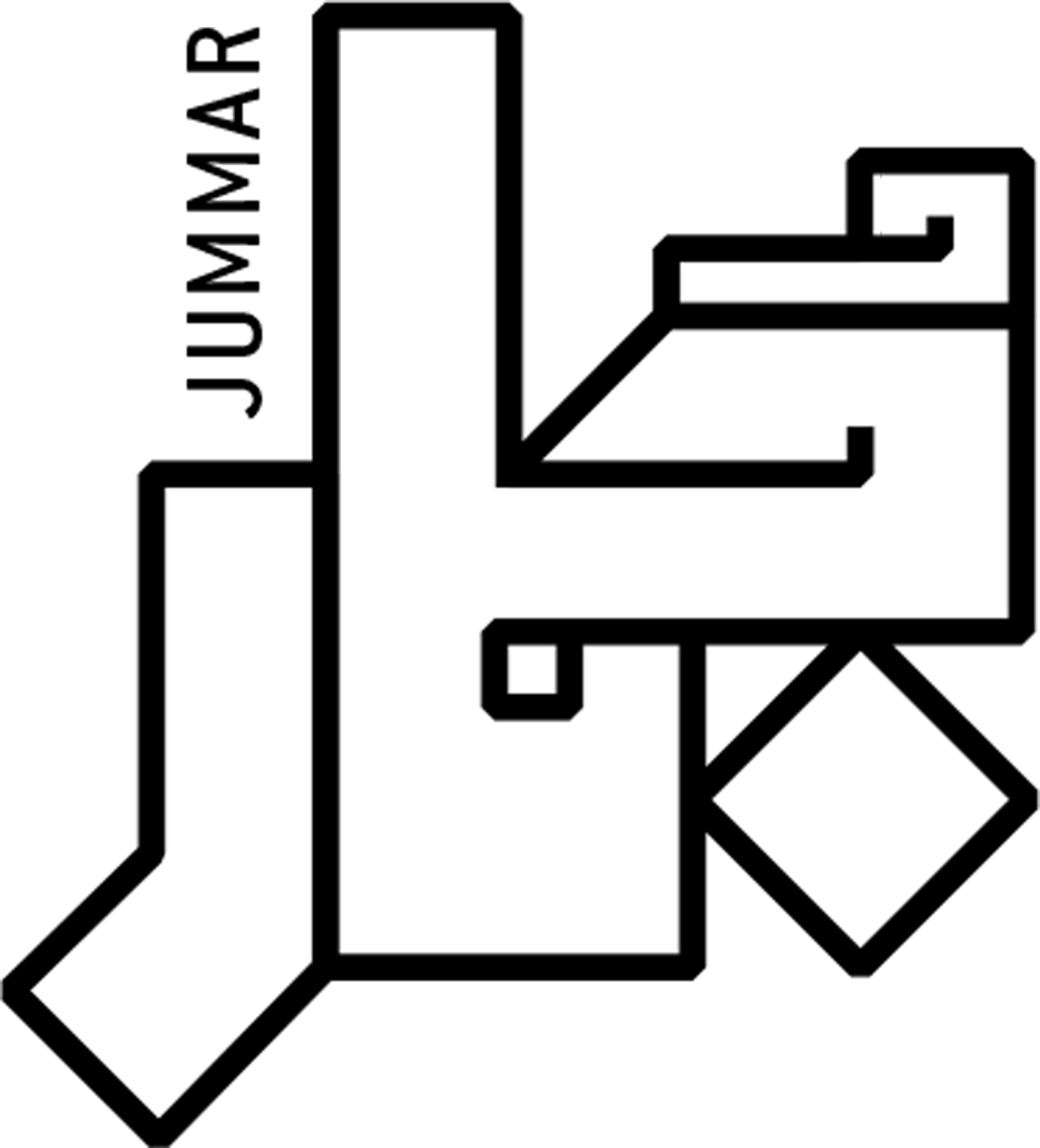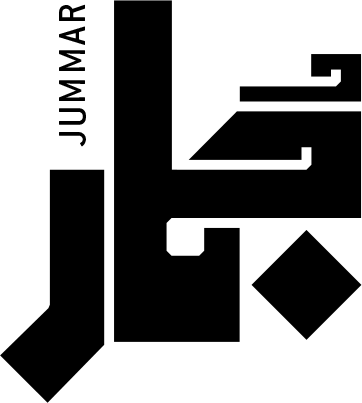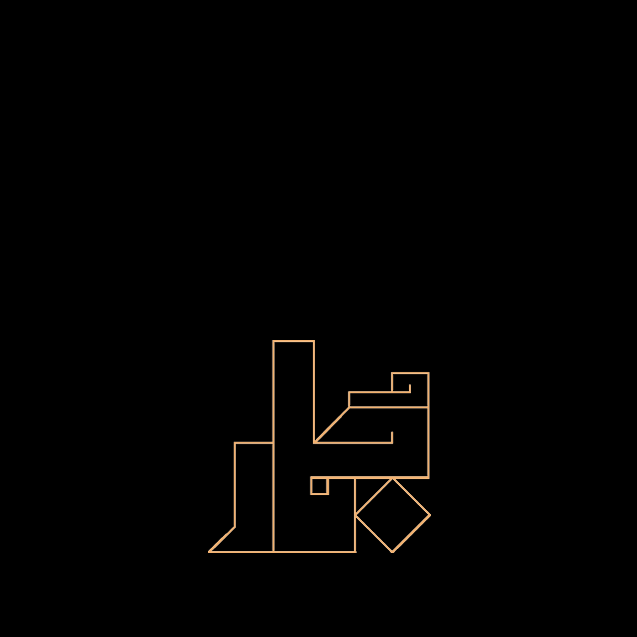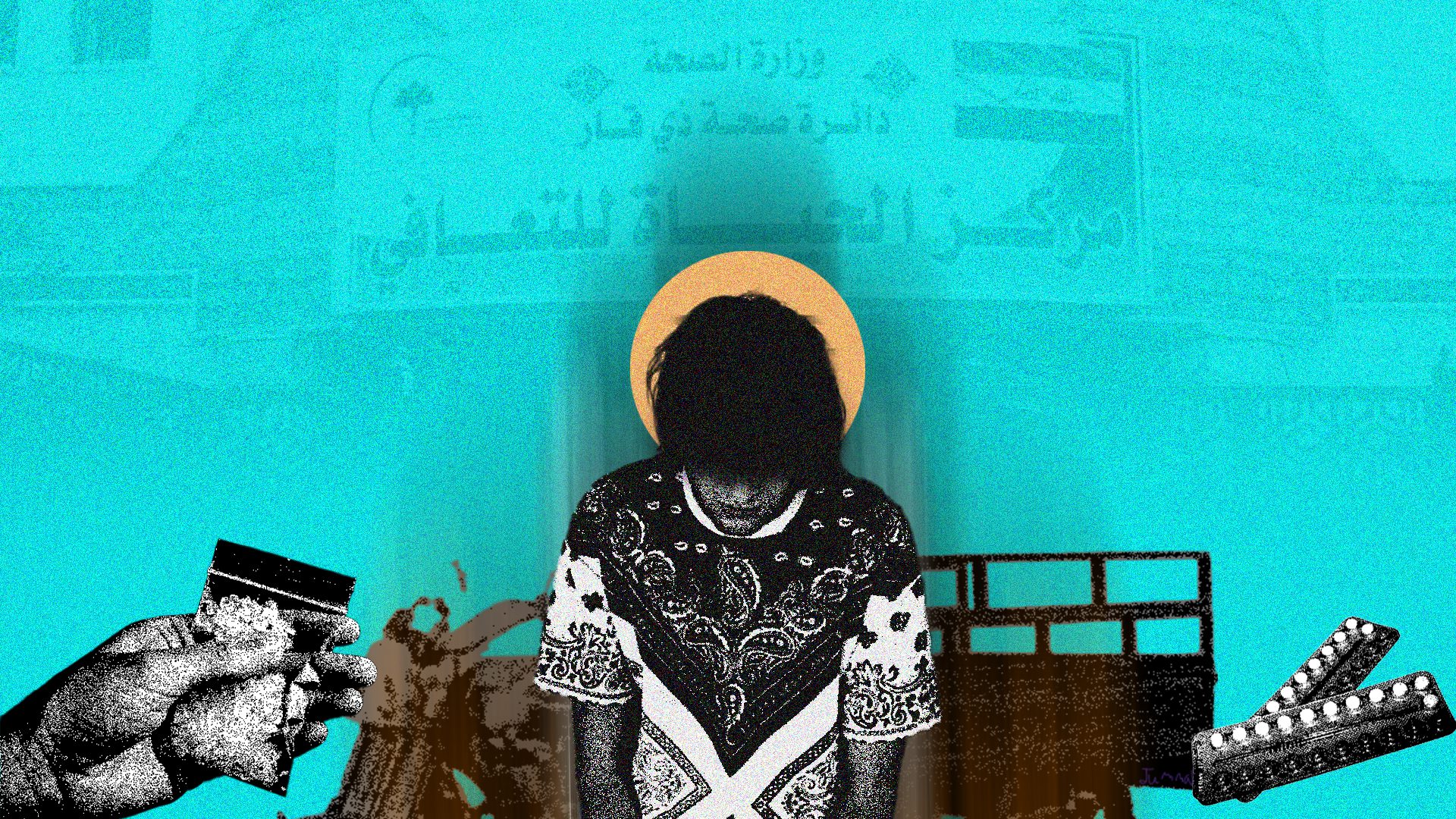“Three a day”... Youth of Tishreen Treat Drug Addiction with “Secrecy”
22 Feb 2023
“Three political entities offered funding for the group’s activities, but we refused”, said Amjad Hussein, member of a voluntary group that treats addicts in a city blighted by drugs where dealers operate with no deterrence or fear. This is the story of ambitious young revolutionaries who went on to treat drug addicts.
Mounir[1] felt an unfamiliar euphoria the first time he inhaled the white smoke that was inside the glass lamp bulb before drawing it into his lungs. It was the twenty-two-year-old’s first dose, and he later wished he had not experimented, as he failed to make it his last.
Mounir works as a “satouta” driver (a tricycle with a large trunk) in the city of Nasiriyah in Dhi Qar governorate, and faces difficult personal circumstances, exacerbated by a hard depressing life. He spends his spare time with friends and knows some of them use drugs, but he did not ever think that one of them might drag him down this destructive path, but he was wrong.
About a year ago, while suffering from severe psychological and physical exhaustion, Mounir was urged by one of his addicted friends to try “crystal”, a famous narcotic substance. His friend convinced him it was like smoking a cigarette, but its effect was slightly stronger. Driven by curiosity and peer pressure, Mounir agreed to join a drug-use gathering at a friend’s house. There was an empty electric lamp bulb with a white crystalline-like substance inside and a plastic tube at the end to inhale the smoke produced by a lighter held under the glass bulb. His first dose was free, and after getting high, he began asking for more, but then he had to pay to get what he wanted. “It was my first step into the trap”, he told Jummar.
The drug gave him a sense of boldness, courage, lightness, and being high, but when its effect wore off after five to six hours, he turned into a melancholic person that could not bear life. Mounir would buy one gram of “crystal” for twenty thousand dinars, meaning that he spent all his work earnings on the substance that a friend would get from various dealers. As the months went by, the effects of addiction began to surface. He became lethargic, sleepy, and bad-tempered. His family noticed and suspected his drug habit, but at first he did not confess when they confronted him. However, he finally admitted it when he understood they wanted to help him, not punish him. He regretted what he had done to himself but was unable to beat his addiction or stop the drug abuse.
However, he did not despair. He kept looking for ways to cure his addiction until inquiries and social media led him to a voluntary youth group in Dhi Qar called “Life Without Drugs”. Legal accountability was what Mounir feared most, but the group reassured him that he would be exempt if he took the initiative to undergo addiction treatment and directed him to a state centre specialising in treating addicts, where he stayed to begin his treatment journey.
Youth of Tishreen
The group was founded by a number of young activists of the October 2019 Movement and started work in January 2022. They took it upon themselves to establish a centre for treating addicts in the governorate. After much effort, the Ministry of Health approved their request, and a centre was established under the name “Addiction Treatment and Mental Illness Centre” in May 2022. The name was then changed to “Al-Hayah Centre for Recovery” in consideration of patients’ sensitivities in relation to their mental health.
The organisation consists of nine young men who used social media to launch the “life without drugs” hashtag on their personal as well as public pages. They also published their mobile numbers so those seeking treatment could contact them. The group members are keen to ensure complete confidentiality and legal protection for addicts seeking treatment, as they work under the precepts of Narcotic Drugs and Psychotropic Substances Law No. 50/2017. Article 40 of the law stipulates “first” that “no criminal proceeding shall be brought against psychotropic drug users who, of their own accord, present themselves for treatment at a hospital specialised in the treatment of addicts”. Article 41 of the same law also states, “confidentiality is observed with regards to persons being treated for addiction or psychotropic substances”.
As most drug users are not familiar with laws, the group also workshard to inform them of the law and the protection and confidentiality it guarantees. Besides encouraging treatment, the group collects donations for those who recover to help them establish small projects or purchase vehicles to work and improve their living standards. Additionally, it organises various social activities for those in recovery, such as football matches and trips, to help them return to normal life after the isolation that drug use causes. The organisation receives calls almost daily from addicts seeking treatment, as Amer Faran, head of the group, disclosed: “Almost a thousand addicts have been treated since the beginning of last year”.
Three a day!
Before establishing the state centre, Dr Ibrahim Al-Sayegh and Dr Amir Farhan offered their private clinics to treat addicts who reached out to the group. Al-Sayegh currently runs Al-Hayah Centre for Recovery, the only centre in Dhi Qar for addiction treatment and one of three specialised institutions in Iraq. From opening its doors in May 2022 until December of the same year, the centre took in 700 addicts, at a rate of three addicts per day. “Their ages usually range between 14 and 24 years”, Al-Sayegh told Jummar.
“Crystal” and “Captagon” are the most popular among addicts, but most prefer the former as it is fast-acting, unlike pills that take up to an hour to work. Treatment includes complete abstinence from the substances and the provision of medication to relieve withdrawal symptoms that appear days after, which include severe headaches, joint pain, and irritability. Some political entities tried to provide funding for the voluntary group which it refused to avoid being used for propaganda purposes. The organisation preferred turning for help to state institutions to provide married addicts with unemployment income and loans to unmarried patients so they could establish small projects.
The volunteers are now waiting the allocation of funds in the 2023 budget to implement a project they proposed that includes establishing a specialised centre with a 100-bed capacity under the remits of the Ministries of Interior and Health. The new centre is intended to treat even convicted addicts after serving their sentences to prevent them from returning to drugs. “The Ministry of Planning has studied this proposal and is waiting the allocation of funds”, Hussein said.
A share for girls
Figures indicate that Dhi Qar urgently needs to intensify drug control efforts, as there are pervasive dealer networks in its cities spreading these illegal substances. A source in Dhi Qar told Jummar that the number of those arrested on charges of promoting, using, and dealing in drugs had exceeded 950 in 2022. “Courts have ruled against around 550 drug suspects”, the source added, who asked to remain anonymous. In the same year, security forces seized about seventeen kilos of crystal, two kilos of hashish, about 50,000 “Kepti” [Captagon] pills, and about 15,000 psychotropic substance pills used as narcotics.
Faran expresses concern about these substances becoming more accessible to girls in schools and young women at universities. Thus, his group has organised seventeen awareness workshops within educational institutions in coordination with the international program, “Recovery”. “We aim to expand workshops this year”, Faran said. The group faces difficulty providing treatment for girls. It is near impossible for a girl in such a conservative society to go to an addiction treatment centre and be admitted for a course of therapy, so they are sent to private clinics and spend their recovery at home.
With the end of each treatment course and the recovery of an addict, the group feel that what they do is not in vain, and this is what they felt when Mounir won his battle against drugs.
Translated by Mariam Morsy.
[1] An alias.
Read More

“His gaze was intrusive; it pierced my soul”: On the Struggles of Divorced Women in Navigating Courts and Governmental Institutions
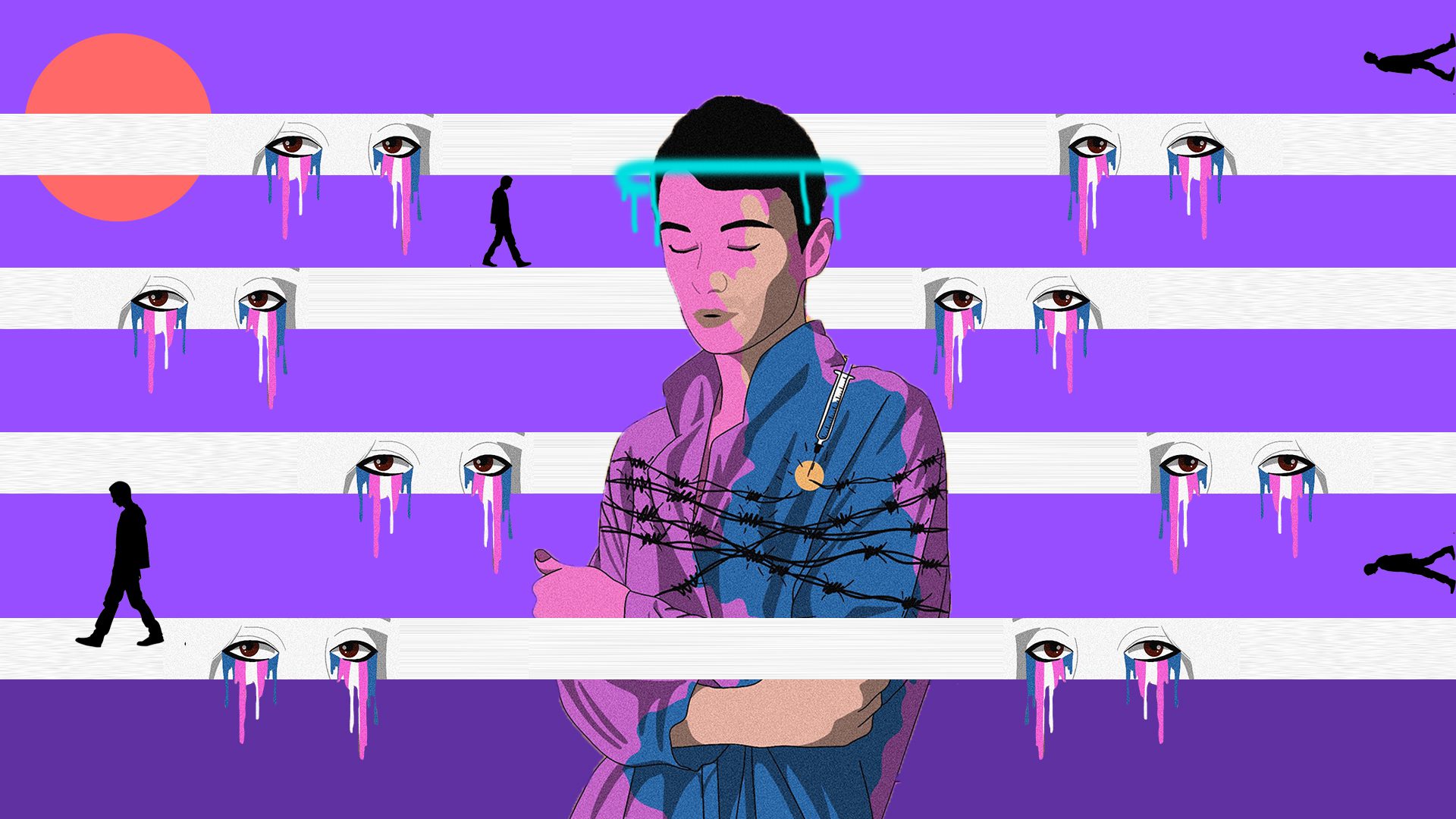
“She Brought a Fatwa from Khamenei and Al-Azhar, But It Went Nowhere”: The Struggles of Trans People in the Iraqi Health Sector
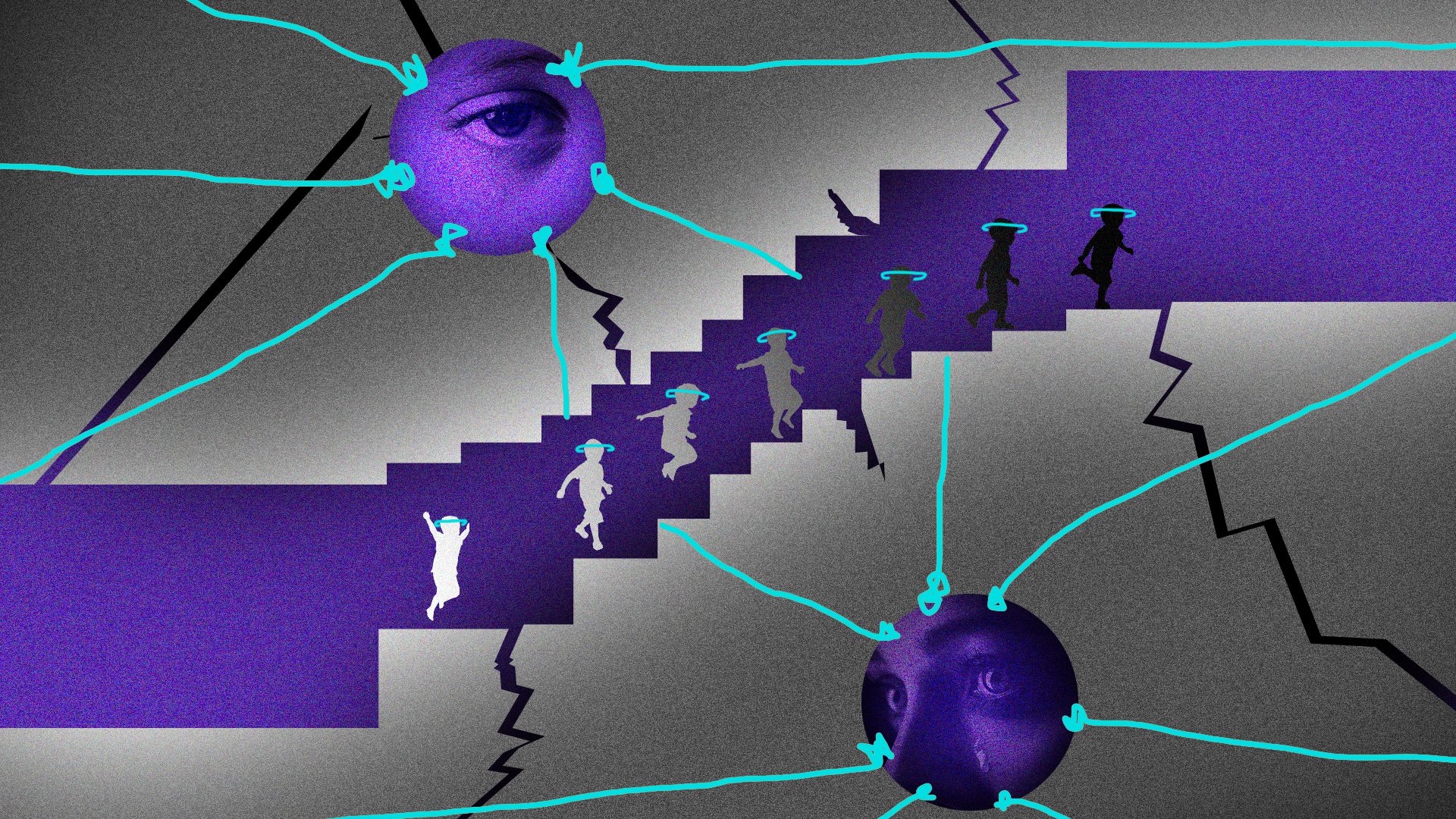
“Everyone has a Right to the Kids Except their Mother”: On Women Fighting for the Custody of Their Children
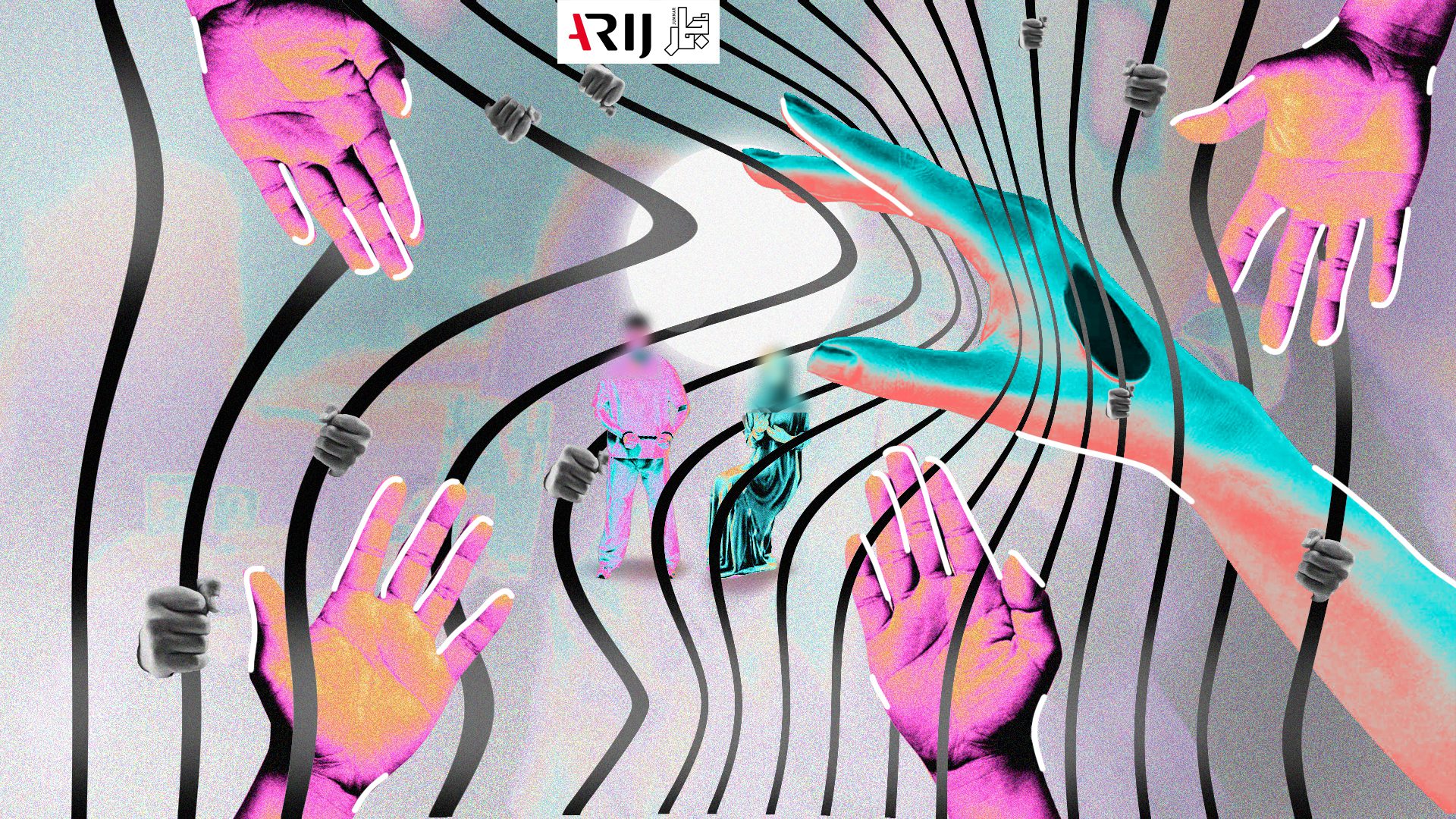
Iraqi Prisoners Blackmailed to Pay To Obtain Release Papers After Completing Their Sentence
Mounir[1] felt an unfamiliar euphoria the first time he inhaled the white smoke that was inside the glass lamp bulb before drawing it into his lungs. It was the twenty-two-year-old’s first dose, and he later wished he had not experimented, as he failed to make it his last.
Mounir works as a “satouta” driver (a tricycle with a large trunk) in the city of Nasiriyah in Dhi Qar governorate, and faces difficult personal circumstances, exacerbated by a hard depressing life. He spends his spare time with friends and knows some of them use drugs, but he did not ever think that one of them might drag him down this destructive path, but he was wrong.
About a year ago, while suffering from severe psychological and physical exhaustion, Mounir was urged by one of his addicted friends to try “crystal”, a famous narcotic substance. His friend convinced him it was like smoking a cigarette, but its effect was slightly stronger. Driven by curiosity and peer pressure, Mounir agreed to join a drug-use gathering at a friend’s house. There was an empty electric lamp bulb with a white crystalline-like substance inside and a plastic tube at the end to inhale the smoke produced by a lighter held under the glass bulb. His first dose was free, and after getting high, he began asking for more, but then he had to pay to get what he wanted. “It was my first step into the trap”, he told Jummar.
The drug gave him a sense of boldness, courage, lightness, and being high, but when its effect wore off after five to six hours, he turned into a melancholic person that could not bear life. Mounir would buy one gram of “crystal” for twenty thousand dinars, meaning that he spent all his work earnings on the substance that a friend would get from various dealers. As the months went by, the effects of addiction began to surface. He became lethargic, sleepy, and bad-tempered. His family noticed and suspected his drug habit, but at first he did not confess when they confronted him. However, he finally admitted it when he understood they wanted to help him, not punish him. He regretted what he had done to himself but was unable to beat his addiction or stop the drug abuse.
However, he did not despair. He kept looking for ways to cure his addiction until inquiries and social media led him to a voluntary youth group in Dhi Qar called “Life Without Drugs”. Legal accountability was what Mounir feared most, but the group reassured him that he would be exempt if he took the initiative to undergo addiction treatment and directed him to a state centre specialising in treating addicts, where he stayed to begin his treatment journey.
Youth of Tishreen
The group was founded by a number of young activists of the October 2019 Movement and started work in January 2022. They took it upon themselves to establish a centre for treating addicts in the governorate. After much effort, the Ministry of Health approved their request, and a centre was established under the name “Addiction Treatment and Mental Illness Centre” in May 2022. The name was then changed to “Al-Hayah Centre for Recovery” in consideration of patients’ sensitivities in relation to their mental health.
The organisation consists of nine young men who used social media to launch the “life without drugs” hashtag on their personal as well as public pages. They also published their mobile numbers so those seeking treatment could contact them. The group members are keen to ensure complete confidentiality and legal protection for addicts seeking treatment, as they work under the precepts of Narcotic Drugs and Psychotropic Substances Law No. 50/2017. Article 40 of the law stipulates “first” that “no criminal proceeding shall be brought against psychotropic drug users who, of their own accord, present themselves for treatment at a hospital specialised in the treatment of addicts”. Article 41 of the same law also states, “confidentiality is observed with regards to persons being treated for addiction or psychotropic substances”.
As most drug users are not familiar with laws, the group also workshard to inform them of the law and the protection and confidentiality it guarantees. Besides encouraging treatment, the group collects donations for those who recover to help them establish small projects or purchase vehicles to work and improve their living standards. Additionally, it organises various social activities for those in recovery, such as football matches and trips, to help them return to normal life after the isolation that drug use causes. The organisation receives calls almost daily from addicts seeking treatment, as Amer Faran, head of the group, disclosed: “Almost a thousand addicts have been treated since the beginning of last year”.
Three a day!
Before establishing the state centre, Dr Ibrahim Al-Sayegh and Dr Amir Farhan offered their private clinics to treat addicts who reached out to the group. Al-Sayegh currently runs Al-Hayah Centre for Recovery, the only centre in Dhi Qar for addiction treatment and one of three specialised institutions in Iraq. From opening its doors in May 2022 until December of the same year, the centre took in 700 addicts, at a rate of three addicts per day. “Their ages usually range between 14 and 24 years”, Al-Sayegh told Jummar.
“Crystal” and “Captagon” are the most popular among addicts, but most prefer the former as it is fast-acting, unlike pills that take up to an hour to work. Treatment includes complete abstinence from the substances and the provision of medication to relieve withdrawal symptoms that appear days after, which include severe headaches, joint pain, and irritability. Some political entities tried to provide funding for the voluntary group which it refused to avoid being used for propaganda purposes. The organisation preferred turning for help to state institutions to provide married addicts with unemployment income and loans to unmarried patients so they could establish small projects.
The volunteers are now waiting the allocation of funds in the 2023 budget to implement a project they proposed that includes establishing a specialised centre with a 100-bed capacity under the remits of the Ministries of Interior and Health. The new centre is intended to treat even convicted addicts after serving their sentences to prevent them from returning to drugs. “The Ministry of Planning has studied this proposal and is waiting the allocation of funds”, Hussein said.
A share for girls
Figures indicate that Dhi Qar urgently needs to intensify drug control efforts, as there are pervasive dealer networks in its cities spreading these illegal substances. A source in Dhi Qar told Jummar that the number of those arrested on charges of promoting, using, and dealing in drugs had exceeded 950 in 2022. “Courts have ruled against around 550 drug suspects”, the source added, who asked to remain anonymous. In the same year, security forces seized about seventeen kilos of crystal, two kilos of hashish, about 50,000 “Kepti” [Captagon] pills, and about 15,000 psychotropic substance pills used as narcotics.
Faran expresses concern about these substances becoming more accessible to girls in schools and young women at universities. Thus, his group has organised seventeen awareness workshops within educational institutions in coordination with the international program, “Recovery”. “We aim to expand workshops this year”, Faran said. The group faces difficulty providing treatment for girls. It is near impossible for a girl in such a conservative society to go to an addiction treatment centre and be admitted for a course of therapy, so they are sent to private clinics and spend their recovery at home.
With the end of each treatment course and the recovery of an addict, the group feel that what they do is not in vain, and this is what they felt when Mounir won his battle against drugs.
Translated by Mariam Morsy.
[1] An alias.
